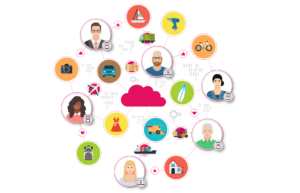In recent years the tremendous power of digital sharing platforms and crowd-based access to existing assets has started to rewrite the rules of business for many industries. Smartphones and mobile technologies combined with shifting societal values are allowing companies with new business models to proliferate at unprecedented speed, scale, and valuation.
The mobility and hospitality industries have fundamentally changed by Sharing Economy incumbents, with other industries like staffing, heavy industry, and logistics not far behind.
Traditional sources of competitive advantage came from deep industry knowledge and acquiring assets to build, distribute, and sell a product or service. In recent years the tremendous power of digital sharing platforms and crowd-based access to existing assets has started to rewrite the rules of business for many industries. As leaders in logistics, DHL think it is time to rethink the logistics industry in the context of the Sharing Economy.
The DHL-report presents options like: Truly Shared Warehousing, Urban Discreet Warehousing, Community Goods On-demand, Logistics Asset Sharing, Transport Capacity Sharing, On-demand Staffing and Logistics Data Sharing.
The further development of blockchain, the highly secure distributed ledger technology underpinning next-generation digital currencies, could disintermediate existing sharing platforms; individuals will be able to securely broker, share, and transact their own assets without an intermediary. Finally, the rapid evolution of artificial intelligence and cognitive computing will revolutionize the digital orchestration of physical goods, material flows, and customer interaction with logistics providers and services.
The full DHL report can be downloaded here.

